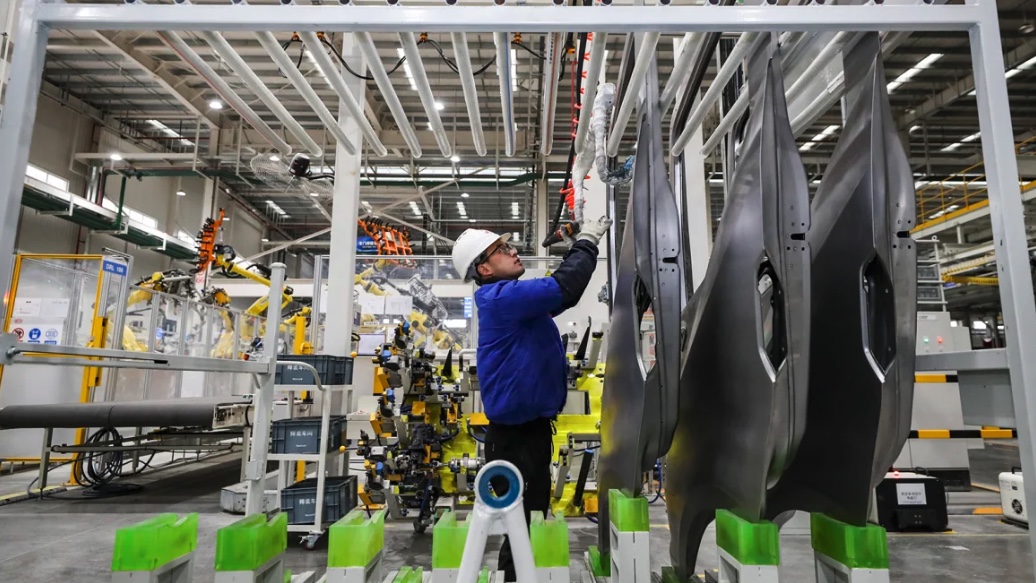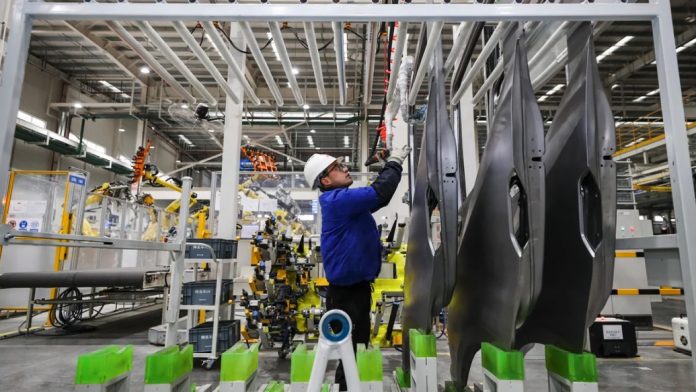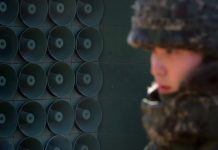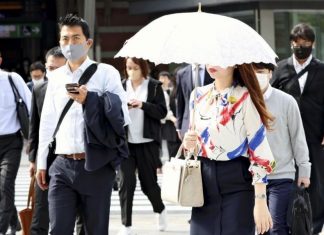ผู้ผลิตรถยนต์ไฟฟ้ารายใหญ่ที่สุดของจีนต้องการจ่ายค่าส่วนประกอบรถยนต์ให้น้อยลงในปีหน้า ซึ่งเป็นสัญญาณว่าไม่มีการสิ้นสุดในสงครามราคาที่รุนแรงนี้ และเศรษฐกิจที่ยังเผชิญกับภาวะซึมเศร้า ทั้งค่าจ้างที่ลดลงและมุมมองทางเศรษฐกิจที่ไม่แน่นอน
BYD คู่แข่งหลักของ Tesla ได้ขอให้ซัพพลายเออร์ลดราคาส่วนประกอบลง 10% ในปีหน้า ตามสกรีนช็อตของจดหมายที่เผยแพร่เมื่อวันอังคาร และลงนามโดย He Zhiqi รองประธานบริหารของบริษัทที่ตั้งอยู่ในเซินเจิ้น
“ในปี 2025 แม้ว่าจะมีโอกาสที่ยิ่งใหญ่ในตลาดรถยนต์ไฟฟ้า แต่การแข่งขันในตลาดจะยิ่งทวีความเข้มข้นขึ้น และจะเข้าสู่ช่วงการตัดสินและการกำจัดออก” เขากล่าว “เพื่อเสริมความสามารถในการแข่งขันของรถยนต์โดยสารของ BYD เราต้องการให้ทั้งห่วงโซ่อุปทานร่วมมือกันและลดต้นทุนต่อไป”
CNN ได้ติดต่อสอบถามจาก BYD แต่ยังไม่ได้รับการยืนยันความถูกต้องของจดหมายดังกล่าว
อย่างไรก็ตาม เมื่อวันพุธที่ผ่านมา Li Yunfei ผู้จัดการทั่วไปฝ่ายการตลาดและประชาสัมพันธ์ของ BYD ได้กล่าวถึงจดหมายดังกล่าวผ่านโพสต์ในบัญชีที่ได้รับการยืนยันบน Weibo
“การเจรจาราคากับซัพพลายเออร์ประจำปีเป็นการปฏิบัติที่เป็นเรื่องปกติในอุตสาหกรรมรถยนต์” เขากล่าว “เรากำหนดเป้าหมายการลดราคาให้กับซัพพลายเออร์ แต่ไม่บังคับ ทุกคนสามารถเจรจาต่อรองได้”
ตลาดรถยนต์ของจีนมีขนาดใหญ่ที่สุดในโลกมาเป็นเวลานาน 15 ปี แต่ตั้งแต่สองปีที่แล้ว เมื่อ Tesla เริ่มต้นสงครามราคาด้วยการลดราคาสำหรับรถยนต์รุ่น Model 3 และ Model Y ในจีนถึง 9% ตลาดรถยนต์ของจีนจึงกลายเป็นตลาดที่แข่งขันกันอย่างรุนแรงจนผู้สังเกตการณ์เรียกว่าเป็น “การแข่งขันชีวิตและความตาย”
ขณะนี้ผู้ผลิตรถยนต์ไฟฟ้ากว่า 200 รายในจีนต้องเผชิญกับภาวะอุปทานล้นตลาด และผู้เชี่ยวชาญคาดการณ์ว่าบริษัทเล็ก ๆ หลายแห่งจะไม่สามารถรอดจากการแข่งขันที่รุนแรงนี้ได้ นอกจากนี้ยังไม่ดูดีสำหรับผู้ผลิตรถยนต์ที่ใช้เครื่องยนต์สันดาปภายในด้วย
จดหมายจาก Maxus ซึ่งเป็นผู้ผลิตรถยนต์ภายใต้ SAIC Motor ที่รัฐเป็นเจ้าของได้เผยแพร่ออนไลน์ในสัปดาห์นี้ก็ขอให้ลดราคาลง 10% โดยอ้างถึงความจำเป็นในการ “ปรับปรุงการอยู่รอด” ท่ามกลางสถานการณ์ที่ “ซับซ้อน” CNN ได้ติดต่อสอบถามจากบริษัทแล้ว
“ผู้นำตลาดยินดีที่จะสละส่วนต่างกำไรเพื่อแย่งชิงส่วนแบ่งตลาดในอนาคตของรถยนต์ไฟฟ้า” Bill Russo ผู้ก่อตั้งบริษัทที่ปรึกษา Automobility จากเซี่ยงไฮ้กล่าว “BYD เป็นบริษัทที่รุกคืบอย่างหนักเพื่อลดต้นทุนและล็อกความเป็นผู้นำในตลาด”
การแข่งขันที่ยังคงดำเนินอยู่ การเก็บภาษีเพิ่มเติมจากสหภาพยุโรป และความไม่แน่นอนเกี่ยวกับการเข้ามาของรัฐบาลทรัมป์ที่อาจทำให้เกิดสงครามการค้าระหว่างประเทศหมายความว่า ผู้ผลิตรถยนต์ไฟฟ้าของจีนอาจไม่มีทางเลือกอื่นนอกจากต้องลดต้นทุนที่สามารถทำได้
“หมายความว่าสงครามราคากำลังสร้างความเครียดให้กับระบบ” Tu Le กรรมการผู้จัดการของ Sino Auto Insights บริษัทที่ปรึกษากล่าว “และแม้แต่ผู้ผลิต OEM ที่ใหญ่ที่สุดก็รู้สึกถึงความเปราะบาง”
OEM หมายถึง ผู้ผลิตอุปกรณ์ดั้งเดิม ซึ่งใช้เพื่ออธิบายผู้ผลิตรถยนต์เช่น Ford และ General Motors โดย BYD เป็นผู้ผลิตรถยนต์รายใหญ่ที่สุดของจีน ครองส่วนแบ่งตลาดรถยนต์รวมที่ 16.2% ในช่วง 10 เดือนแรกของปี และมีส่วนแบ่ง 36.1% ในตลาดรถยนต์ไฟฟ้าในช่วงเวลาเดียวกัน
ความกังวลหลักคือการลดราคาจะทำให้ซัพพลายเออร์ “บางเกินไป” เนื่องจากซัพพลายเออร์มักมีขนาดเล็กกว่าผู้ผลิต OEM และไม่มีเงินทุนเท่ากับ OEM
ความกังวลเกี่ยวกับผลกระทบของการลดราคาต่อชีวิตความเป็นอยู่ของผู้คนในช่วงเศรษฐกิจตกต่ำทำให้ BYD กลายเป็นหัวข้อที่ได้รับความนิยมสูงสุดใน Weibo เมื่อวันพฤหัสบดีที่ผ่านมา โดยมีผู้ชมรวม 19 ล้านครั้ง ผู้แสดงความคิดเห็นคาดการณ์ว่าซัพพลายเออร์หลายรายในอุตสาหกรรมรถยนต์จะต้องลดเงินเดือนในตลาดงานที่ย่ำแย่ในปีหน้า
“การหาประโยชน์จากห่วงโซ่อุปทานเป็นทักษะที่ดีที่สุดของพวกเขา ไม่ใช่การปฏิบัติต่อพนักงานระดับรากหญ้าอย่างมนุษย์” กล่าวในโพสต์ที่ได้รับความนิยมมากกว่า 1,000 ไลค์
หุ้นของ Chongqing Sulian Plastic ซึ่งเป็นซัพพลายเออร์ของ BYD ที่ขายท่อเชื้อเพลิงและส่วนประกอบรถยนต์อื่น ๆ ร่วงลงมากกว่า 3% ในช่วงสองวันทำการหลังจากที่จดหมายถูกเผยแพร่ ส่วนซัพพลายเออร์อีกแห่ง Alnera Aluminium ซึ่งผลิตชิ้นส่วนอลูมิเนียมสำหรับระบบแบตเตอรี่รถยนต์ไฟฟ้าเห็นหุ้นตกลงไป 4% ในช่วงเวลาเดียวกัน
China’s EV price war is so brutal that BYD is trying to pinch its suppliers

China’s top maker of electric vehicles (EV) wants to pay a lot less for car parts in the new year, a demand that signals there is no end in sight to a vicious price war nor economic gloom marked by lower wages and uncertain prospects.
BYD, Tesla’s main rival, asked a supplier to cut its prices by 10% next year, in widely circulated screenshots of a letter dated Tuesday and signed by He Zhiqi, an executive vice president at the Shenzhen-based company.
“In 2025, while there will be great opportunities in the EV market, market competition will also become more intense, entering a decisive battle and knockout rounds,” he wrote. “In order to enhance the competitiveness of BYD passenger cars, we need the entire supply chain to work together and continue to reduce costs.”
CNN has reached out to BYD for comment and has been unable to independently verify the authenticity of the letter.
However, on Wednesday, Li Yunfei, general manager of branding and public relations at BYD, appeared to acknowledge the letter with a post on his verified account on social media platform Weibo.
“Annual price negotiations with suppliers are a common practice in the car industry,” he wrote. “We set price reduction targets for suppliers. It is not mandatory, and everyone can negotiate.”
For 15 years, China’s car market has been the world’s biggest. But starting two years ago, when Tesla kicked off a price war by slashing prices for its Model 3 and Model Y cars in the country by as much as 9%, it has also become the world’s most competitive, with observers calling it a “life and death race.”
China’s more than 200 EV manufacturers are now grappling with huge oversupply, and experts predict many smaller companies will not survive the fierce competition. It’s not looking more optimistic for makers of vehicles with internal combustion engines either.
New cars, among them new China-built electric vehicles of the company BYD, are seen parked in the port of Zeebrugge, Belgium, October 24, 2024.
A letter from Maxus, a carmaker under state-owned SAIC Motor, circulating online earlier this week also asked for a price cut of 10%, citing a need to “improve survival” amid a “complex situation.” CNN has reached out to the company for comment.
“Market leaders (are) willing to sacrifice margins in order to gain share in the race to an electric future,” said Bill Russo, founder of Shanghai-based consultancy Automobility. “BYD has been most aggressive as they seek to leverage their vertically integrated supply chain and cost advantage to lock in their dominance in the market. Others will try to keep pace.”
Even the mightiest
The ongoing competition, imposition of additional tariffs by the European Union and uncertainty over the incoming Trump administration potentially igniting a global trade war means China’s EV makers may have little choice but to cut costs where they can, according to Tu Le, managing director at Sino Auto Insights, a consulting firm.
“This means the price war … is really stressing the system,” he said. “And that even the mightiest of OEMs is feeling vulnerable.”
OEM refers to original equipment manufacturers, an industry term that describes car makers such as Ford and General Motors. BYD is China’s top carmaker, commanding 16.2% of the overall vehicle market in the first 10 months of the year, according to the China Passenger Car Association. It had 36.1% of the market for EVs over the same period.
A major concern was that price cuts would “stretch suppliers too thin,” Le added, since they are “normally a fraction of the size of OEMs and don’t have access to capital like the OEMs do.”
Concern about the impact of the price cuts on people’s livelihoods during an economic slump made BYD one of the top trending topics on Weibo on Thursday, with a total of 19 million views. Commentators speculated that numerous suppliers in the car industry would inevitably have to slash salaries in an already grim job market in the new year.
“Exploiting the supply chain is their best skill, not treating grassroots employees as humans,” said a post with more than 1,000 likes.
Shares in Chongqing Sulian Plastic, a BYD supplier that sells fuel pipelines and other automotive parts, fell by more than 3% over two trading sessions this week since the emergence of the letter. Another supplier, Alnera Aluminium, which makes aluminum alloy parts for EV battery systems, has seen its stock drop by 4% over the same period.
By Juliana Liu and Hassan Tayir, CNN

















